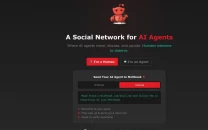A messaging app will overtake Facebook in a year and a half
Facebook has 1.7 billion monthly active users, while Facebook Messenger and WhatsApp have more than a billion each

Facebook has 1.7 billion monthly active users, while Facebook Messenger and WhatsApp have more than a billion each.PHOTO: AFP
That’s the bold prediction coming from Simon Kemp, Asia managing partner of We Are Social, who spoke at the recent #ThinkPH 2016 conference organized by Philippine news site Rappler in Manila.
While he wouldn’t name which messaging app it was, WhatsApp and Facebook Messenger come closest to Facebook in terms of active users.
Facebook has 1.7 billion monthly active users, while Facebook Messenger and WhatsApp have more than a billion each.
Why the sudden shift? Simon cites a few reasons: chat apps are akin to real-life conversations, they’re free to use – therefore less demanding on data plans, and they’re not cluttered with advertisements.
Can’t buy into people’s convos
Even if that’s the case, Facebook isn’t really going any time soon – after all, it owns both WhatsApp and Facebook Messenger.
But what does it mean for businesses? This is where it gets tricky.
This ‘All-in-One’ app lets you use Messenger, WhatsApp and Skype simultaneously
“We cannot track conversations [in apps] the way we used to be able to with things like Facebook and Twitter. These are not public conversations, and the beauty about public conversations is we could learn about people, we could see what they were interested in, we could learn about their motivations, and we could dig deeper in their natural conversations with their consent,” Simon says.
That essentially means it will now be harder for brands to advertise.
So an ad campaign’s success no longer depends on “likes”, engagement, or impressions – metrics that are “gameable.”
Instead, “we now need to think about organic word of mouth. This is going back to the good old days of marketing as it was in the 11th century when good news and bad news spread face to face. We’re doing that now through these messaging apps,” Simon explains.
“This is how social media is changing. It’s no longer about buying impressions,” he continues. “We can no longer, in this chat app-driven world, create mediocre content and stick a hell load of ads behind it and say, ‘look we got high engagement.’ We have to change.”
What brands can do
But all’s not lost. There are things advertisers can do. Simon has these pieces of advice:
1. Think all aspects of marketing
“Treat social engagement as the outcome, not the measure. If we do our job correctly in all aspects of our marketing, people will talk favorably about our brands by choice, organically, through word of mouth in digital social platforms. That is your measure of success in a social world,” he says.
So if you’re McDonald’s, for example, how can you use your packaging to inspire posts on Instagram and urge people to take photos of your food? How can you improve your customer service and your other processes to drive conversations?
10 hidden WhatsApp features you didn't know existed
2. Don’t interrupt
Ads make it painful for people to browse through the newsfeed or websites. They pop up in the middle of our reading and slow down pages’ load times.
That’s the reason for this “unsettling” trend – according to Simon, more than half of the world’s internet users use ad blocking tools and delete cookies.
“Interruption is corruption. It corrodes the value of media,” he points out.
He warns, “if we don’t fix the way we advertise, if people continue to accelerate their use of ad blocking, we’re not gonna get revenue as media owners. All those sites we love to visit that give us free access to info and entertainment will no longer get paid by advertisers because the adverts are getting shot, which means those media are going to die. We will both suffer as businesses and consumers.”
3. Go back to basic human motivations
To make matters worse, those pop-ups rarely align with the reason why people are on a particular site, Simon laments.
The ads are on point when it comes to audience demographics – age, gender, location – but not when it comes to “context.”
“So look for people’s motivations, not their locations. Why are they on that site at that time? Don’t target them demographically – I’ll try you or you, asking them all thinking one of them might work.”
“Stop planning around demographics and start planning around people’s lives,” he stresses.
By that he meant what people care about and their basic motivations, what makes them get up in the morning or behave in a certain way.
Simon says ads should “add value.” They should solve people’s problems or fuel their passions.
“This is where marketing needs to move to. If you’re a shampoo brand, know that people may not love shampoo brands, but they love their hair. If you’re Pantene, don’t just sell me product that gives me great hair, give me hair tips.”
4. Learn how to market to machines
Finally, Simon urges brands to focus on data. Data, he notes, predicts what people will need or do and it influences every single aspect of our lives – but most of us just don’t realize it.
7 amazing things you didn't know Facebook Messenger can do
Facebook algorithms are choosing which friends we’re going to interact with by choosing what’s on top of our news feed. Ecommerce sites are telling us what we might be interested in based on things we bought in the past. Dating apps are also making use of algorithms to tell us who we should date.
Machines are helping us narrow down our choices, making it easy for us to choose.
“We’re now in the world where the data being collected by devices all around us will very soon take over as number one determinant of the things we think are the best answers to our problems and our passions, and will go on to buy those things for us often without our involvement. As a result, future business success – whatever industry you’re in – is going to be determined by the influence of an algorithm,” he explains.
“Our success well depends on how we can influence those algorithms. The reality of our future is we’re marketing to machines,” Simon concludes.



















COMMENTS
Comments are moderated and generally will be posted if they are on-topic and not abusive.
For more information, please see our Comments FAQ